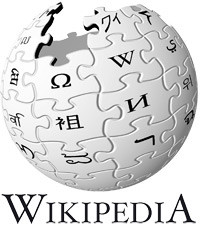By Joe Johnson (The Cascade) – Email
Print Edition: February 1, 2012
Perhaps the greatest friend and worst enemy to academics is Wikipedia. Over this past week The Cascade has surveyed students, faculty members and the Research Services department to get a better understanding of where it fits in, how it is understood, and to see if it can be a reliable source of information in academia.
The problems with Wikipedia are inherent. The information can be falsified or changed if an article is new, or if many users mob the site to overwhelm the truth. Perhaps best proven true a few years ago on the Colbert Report regarding ‘wikiality’, “together we can create a reality that we all agree on—the reality we just agreed on.” He had his viewers go to the page on elephants and enter “The number of elephants has tripled in the last six months.” In this way, it can be viewed as problematic. But arguably there remain many positive aspects of the site.
From a student perspective of Wikipedia, its uses range from it serving as an initial information gathering place for further research, to full citations of credible articles within it. Of course, some students realize that much of Wikipedia information is cited and the links to sources provided will take you to where that information came from. Anecdotally and intuitively, first year students would be more likely to cite a Wikipedia article. But as your studies advance, so does your critical use of it – where those listed articles on the bottom of each page begin to come in play. This evolution can often be attributed to a professor’s insistence on real research, as well as being taught how to view the site critically.
And when speaking with professors, it appears to be true. Over half a dozen educators, all from different departments had nearly identical things to say. One of the reoccurring themes was that it’s a great place to get an overview of the topic at hand and is a place to start searching, but should never be the last.
Barbara Messamore from UFV’s History department said, “I tell students to go ahead and read Wikipedia – I love to read it myself. But they need to know that everything they read there has to be verified in some other source. I have seen students cite false information that someone has added mischievously.”
Irwin Cohen of the Criminology department stated, “I do not allow my students to cite the website in their work as it is an open source website that is not peer-reviewed. While I don’t restrict my students exclusively to peer-reviewed material, I don’t allow Wikipedia because there are no external controls to ensure that the information is accurate, to the best of my understanding.”
English professor Trevor Carolan mentioned that this year he began adding to his course outline, “Note: Wikipedia is not a credible reference source.” He also explained that, “If you’re writing a research paper and think that slamming into Wikipedia and nothing, or little, else will get you through, that’s not scholarship, it’s slack practice. Most profs I know, myself included, would hand a paper of this kind back unread.”
Finally, Yvon Dandurand, associate vice president of Research & Graduate Studies was of the mind that while Wikipedia is great, students have a wealth of access to many different research sources. There are databases, journals, books, reports, even librarians at students’ disposal – all for free.
“Wikipedia, like anything else, can turn into an opportunity to learn,” Dandurand concluded. “There’s nothing wrong with using Wikipedia as long as it’s a starting point, not the destination. And that as a student when you start with using Wikipedia, that’s convenient like any search instrument, then you keep on looking, and you look at alternative sources – make use of our extensive library.”
While inroads are being made to increase the credibility of Wikipedia, such as professionals in specific areas monitoring information, editors involved, and even schools teaching students how to properly edit – as well as read– articles, Wikipedia states on their own website, “Do your research properly. Remember that any encyclopedia is a starting point for research, not an ending point.”


